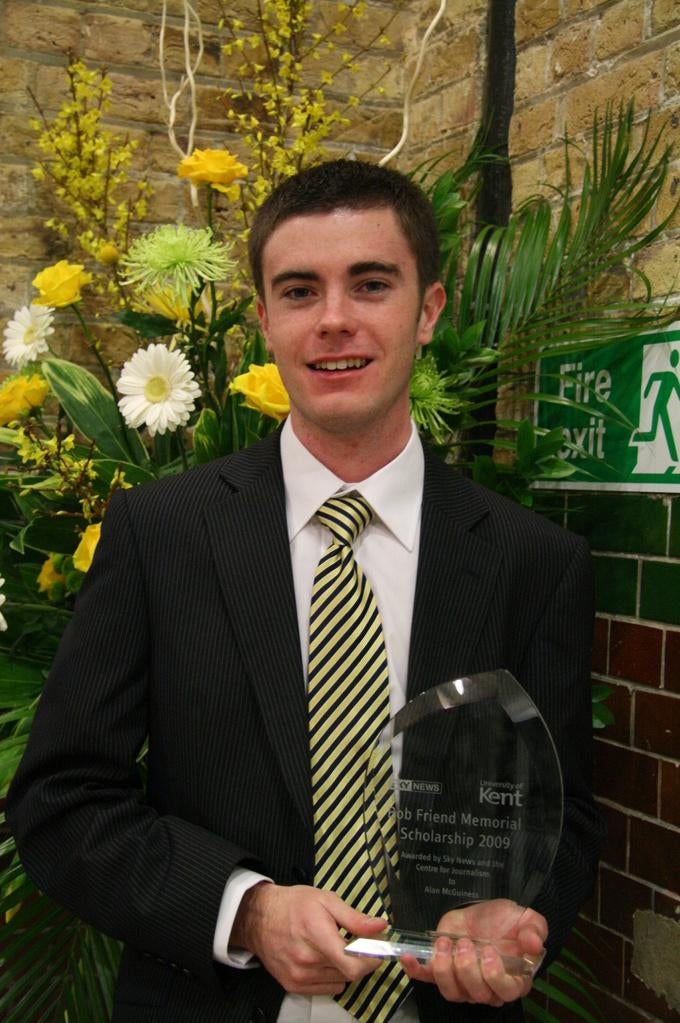
Professional journalists and professional news organisations have a bright future, according to the head of Sky News.
John Ryley, speaking at last night’s inaugural Bob Friend Memorial Lecture – in honour of the late Sky News presenter and BBC journalist – was asked if professional journalists will exist in 20 years’ time.
He replied: ‘They will, for sure.
‘We need fellow human beings who can sift though the information, evaluate the sources of information, and decide if something is true or not true – and also to decide how to tell it.”
When asked who would pay for those journalists, Ryley said: ‘People will always value high quality content.
‘In 10 – 15 years’ time the world will be awash with information, but trusted news sources have a valuable shelf life. I’m convinced people will pay for that.”
Ryley also predicted people will watch news via mobiles, rather than television, in the future.
‘I think mobile phones will pay a significant part,’he said.
‘At the moment they’re used to gather news, by professionals and by citizens, but not many people receive their news through mobile.
‘The mobile, or something of that size, will change things. I suspect fewer of us will sit in front of the television.
‘We’ll watch news wherever we want, and what ever time we want.”
Ryley was also asked whether he was concerned at suggestions BBC and ITV may co-operate on regional news.
‘No,’he said. ‘Whatever you may hear to the contrary, it’s not something we are particularly keen to do.’BSkyB corporate affairs director Graham McWilliam told parliament last week that regional news was something Sky was “an opportunity we will continue to look at ourselves”.
‘If you don’t innovate, you die’
In the lecture – which coincided with Sky News’s 20-year anniversary – Ryley presented coverage of the past two decades’ biggest stories, from the Asian tsunami to Michael Jackson’s trial (which was covered by Sky with actors and a mocked-up courtroom).
He said: ‘If you don’t innovate, you die. Throughout Sky’s 20-year history, the need to innovate has been critical to our success.
‘Our story is about daring to be different, the drive to be first, the importance of keeping rivals guessing.
‘On 5 February, 1989, the television news-scape was a grey place…momentous events occurred and most people would hear little or nothing for hours.
‘[News] was handed down like tablets of stone.”
On suggestions that Sky’s need for speed meant it makes frequent errors – critics say the channel is ‘never wrong for long’– Ryley said, following 9/11, BBC News changed its policy to match Sky’s.
‘We take viewers into our confidence,’he said. ‘That means that when a big story breaks, we report new information, clearly attributed to its source, even if it changes later.”
Memorial scholarship
Before the lecture, at the University of Kent’s centre for journalism in Chatham, student Alan McGuinness was presented with the Sky News Bob Friend Memorial Scholarship.
McGuinness – who won through a three-stage selection process – will have his first-year tuition fees paid by Sky, and will spend four weeks in a Sky newsroom this summer.
Ryley said: ‘The Bob Friend Scholarship is our way of doing something to help the future…one of the most dangerous places in journalism was to get between Bob Friend and a story.”
Email pged@pressgazette.co.uk to point out mistakes, provide story tips or send in a letter for publication on our "Letters Page" blog

